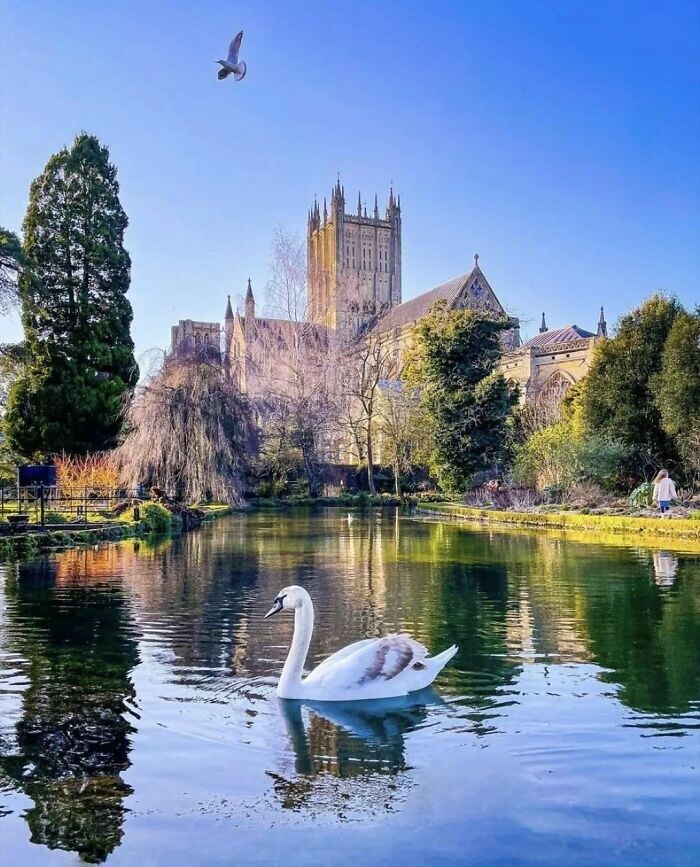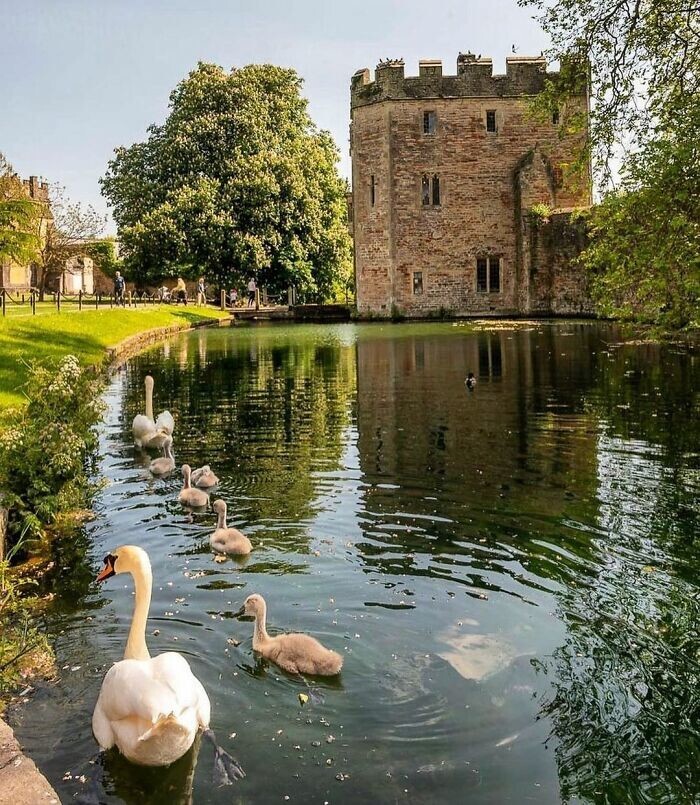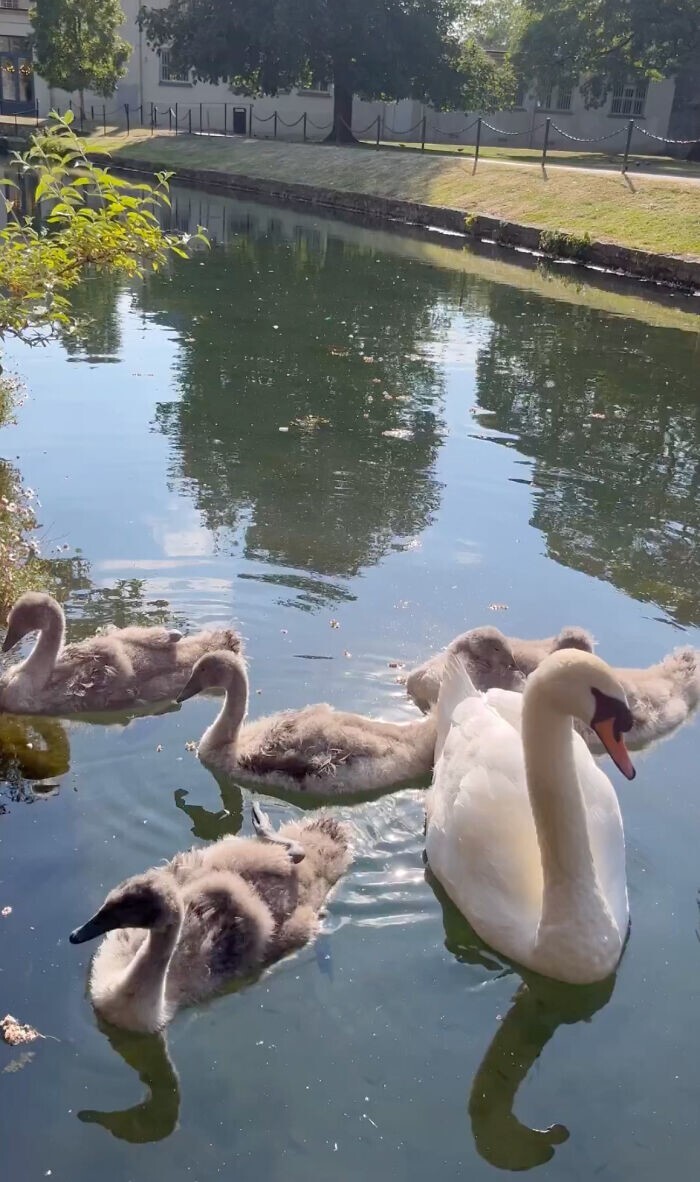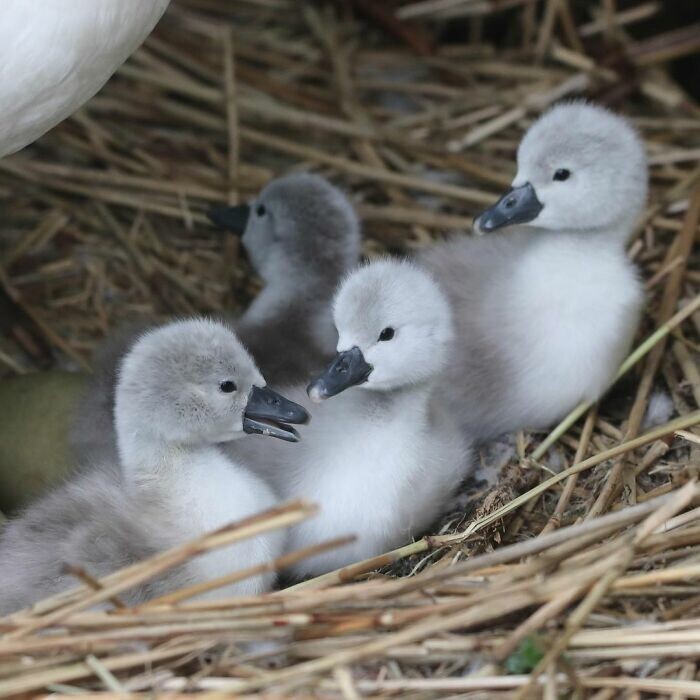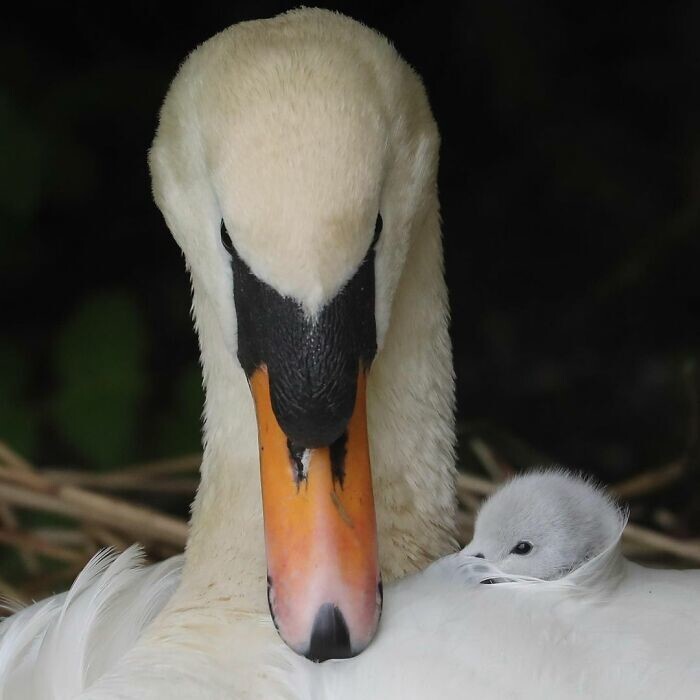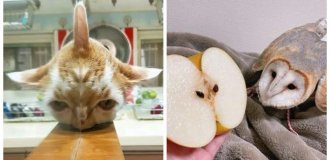Swans in an English town have the sweetest tradition (8 photos + 1 video)
A flock of swans lives in the small English town of Wells, of which there is one charming tradition that dates back to the 1850s years. To see it, many tourists come here. 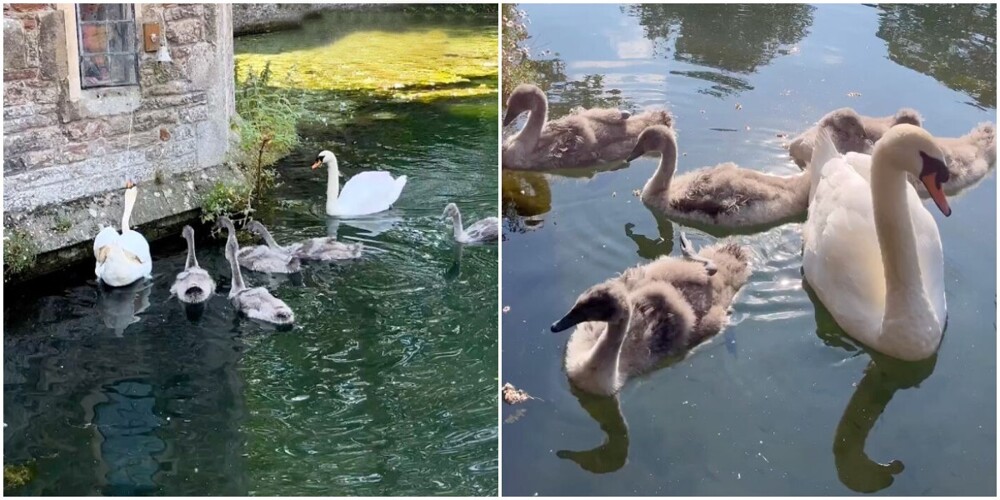
The small town of Wells in England is immersed in lush greenery, and there is beautiful architecture on every corner here. here every year many tourists come, including to look at one charming local tradition. A flock lives near the Bishop's Palace here swans. Every time the birds are hungry, they swim up to one of the the windows of the palace, and the bells are ringing. Clever birds have learned to pull strings, warning the palace staff that they want to eat. Of course, the swans immediately get their treats. 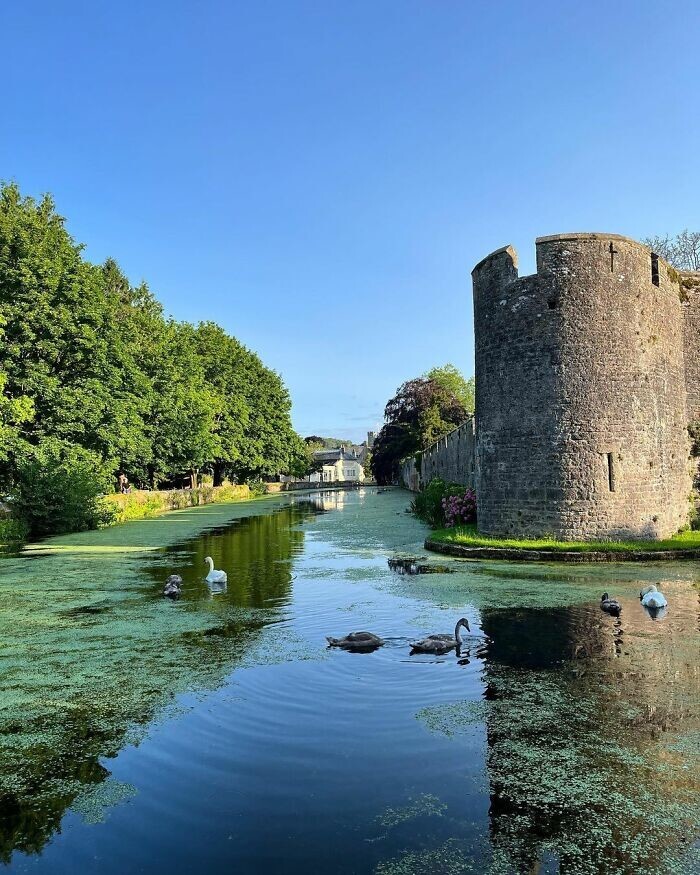
This tradition has deep historical roots and begins with 1850s. Once upon a time, the bishop's daughter was the first to "teach" swans to call bells, and it continues to this day. The swans themselves transmit this tradition to his chicks, showing them how to pull the string. Swans are given specially prepared food that satisfies them. needs and provide adequate nutrition. By the way, some swans arrived here from the British rescue organization Swan Rescue. One rescued pair of swans, Grace and Gabrielle, have been living here since 2019 of the year. They have chicks every year, so they already live in the pond four generations of swans. 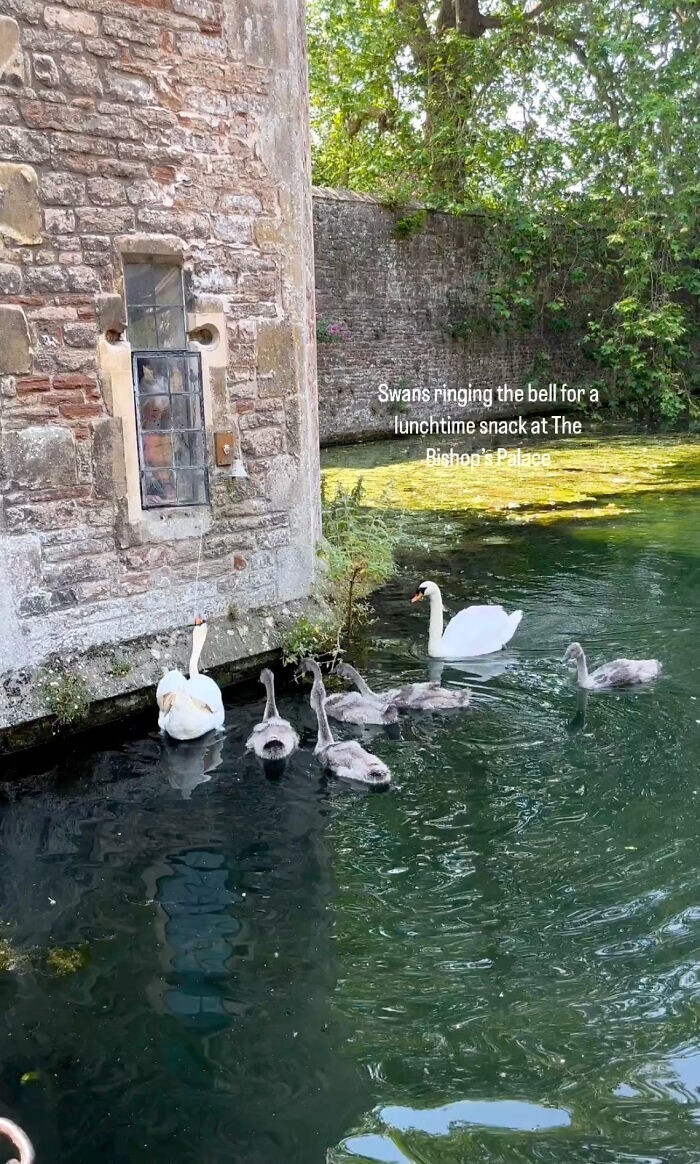
The premises of the palace and its courtyards are decorated with images and swan statues. Here they love and respect these birds very much, and their beauty reminds people how important it is sometimes to stop and just look at wonderful creations of nature. However, animal rights activists report that many tourists harm the swans by trying to feed them bread. Bread, especially in large quantities, can cause nutritional problems and even cause disease in these birds. Therefore, in the case of swans (and also ducks), it is better to feed them with oatmeal, millet, barley, wheat, or finely chopped vegetables: potatoes, beets, carrots, cabbage. 